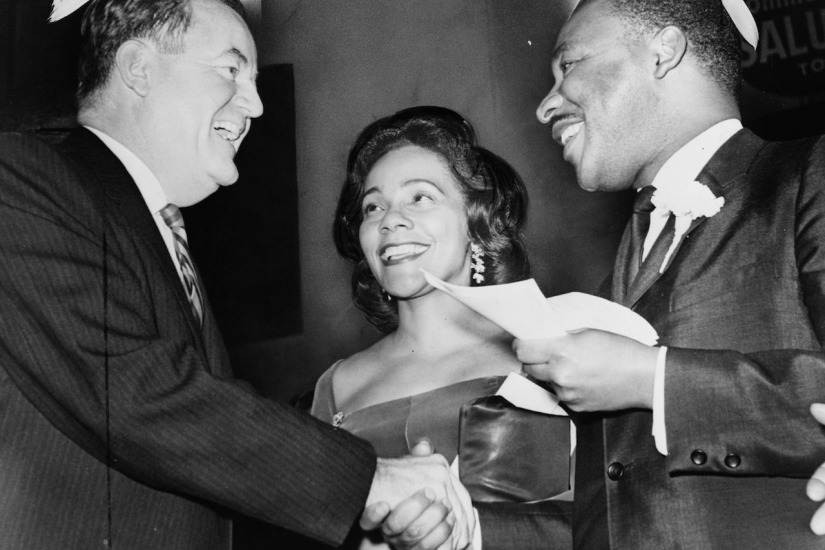As the Democratic Party struggles to regain its once-solid national majority, journalists, academics, commentators, and politicos keep reverting to an irresistible narrative: that the party’s commitment to racial equality has alienated it from the white working and middle classes — perhaps irreversibly. As a result of this misstep, Democrats now seem to be the “party of minorities, the marginalized, and their young and elite liberal patrons.”
Those are the words of the journalist James Traub, which appear in a provocative piece in the Atlantic. Traub is only the latest in a long line to make this claim.
But where most commentators trace the Democrats’ downfall to the late 1960s, when the party broke with the allegedly “colorblind” universalism of Martin Luther King Jr. and embraced something these critics call “identity politics,” Traub makes the case that the Democrats’ decline can be traced all the way back to 1948, when Hubert Humphrey persuaded the Democratic National Convention to endorse a platform in favor of civil rights, over the objection of Southern conservatives and risk-averse Northerners.
By morally committing the Democrats to racial equality, Humphrey set the party and the country on the path that led to desegregation, LBJ, the Great Society, mandatory busing — and, finally, white “backlash.”
“Did the commitment of 1948 lead inevitably to the electoral calamity of 1968 and beyond?” Traub asks. “That is, did the Democrats doom themselves to lose much of the white middle class simply by demanding equal rights for black people?”
The defection of white Southerners, the loss of support among white working- and middle-class voters in the North, the rise of George Wallace, Ronald Reagan, and now Donald Trump — each might have been avoided but for this commitment to racial equality. In Traub’s words: “Thanks to Humphrey and the ADA [Americans for Democratic Action], the Democrats had done something even more dangerous than they understood: They had exchanged a politics of self-interest for a politics of moral commitment.”
It has now become common to argue that the downfall of the New Deal can be attributed to the belated addition of “identity-based” claims — namely, claims to racial equality — to what had been a broad-based coalition rooted in the economic interests of workers, albeit one focused at first mainly on whites.
